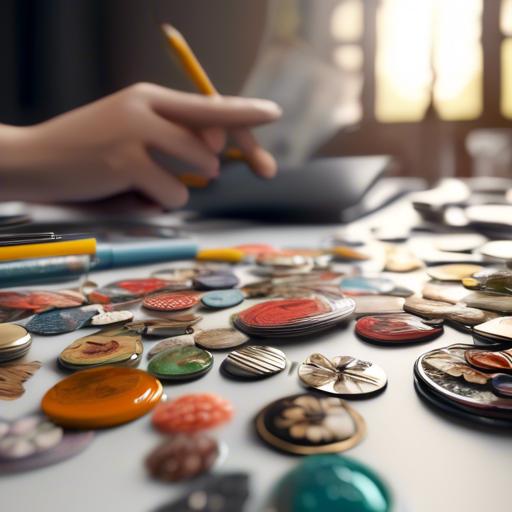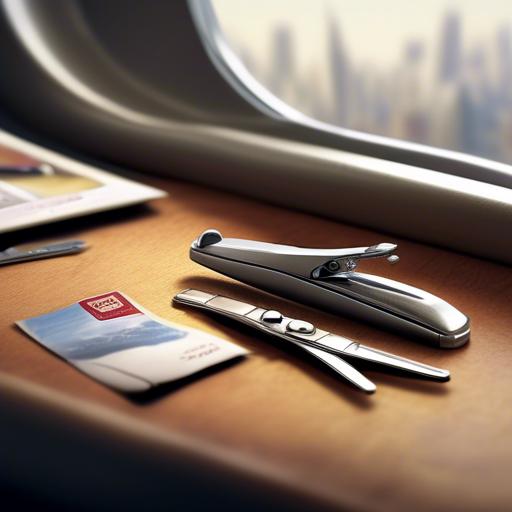As someone who has a growing collection of enamel pins, I frequently enough find myself pondering the question: what material is best for pins? With countless options available on the market, from hard enamel to soft enamel, it can be overwhelming to determine wich type of pin is best suited for your needs. In this article, we will explore the different materials used in pin-making and discuss the pros and cons of each, so you can make an informed decision when adding to your pin collection.
– The Ultimate Guide to Choosing the Perfect Material for Your Pins
Pins are a versatile and popular accessory that can add a touch of personality to any outfit or accessory. When it comes to choosing the perfect material for your pins, there are a few key factors to consider. Durability is essential, as you want your pins to last for a long time without losing their shape or color. Aesthetic appeal is also crucial,as you want your pins to look great and stand out.
Enamel pins are a popular choice for their vibrant colors and smooth finish. They are durable and can be customized to suit any design. Metal pins, on the other hand, offer a classic and timeless look. They are sturdy and can be made from various metals such as brass, copper, or gold. Acrylic pins are a more affordable option and can be easily customized with different colors and designs. Wooden pins have a unique and natural look,perfect for those looking for a unique touch. Ultimately, the best material for your pins will depend on your personal style and preferences.
- Examining the Benefits of Different Pin Materials: Which One Should You Use?
When it comes to choosing the right material for your pins, there are several options to consider. Each material offers its own set of benefits and drawbacks, so itS important to weigh your options carefully before making a decision.
Steel Pins: Steel pins are a popular choice due to their strength and durability. They are resistant to corrosion and are less likely to bend or break, making them a reliable option for long-term use. Steel pins are also cost-effective, making them a great choice for businesses looking to purchase pins in bulk.
Brass Pins: Brass pins are known for their aesthetic appeal and can add a touch of elegance to any project. They are softer than steel pins, making them more malleable and easier to work with. Brass pins are also resistant to corrosion, making them a great option for projects that may be exposed to moisture. Additionally, brass pins are non-magnetic, making them ideal for use in electronic devices.
| Material | Strength | Cost |
|---|---|---|
| Steel | High | Affordable |
| Brass | Moderate | Mid-range |
– Expert Recommendations: Top Pin Materials for Long-lasting Quality and Durability
When it comes to choosing the best material for pins, experts agree that durability and long-lasting quality should be top priorities. There are several materials on the market that are known for their strength and resilience, making them ideal for pins that need to withstand frequent use.
One popular option is stainless steel, which is known for its corrosion resistance and ability to maintain its shape over time. Brass is another excellent choice, as it is durable, easy to work with, and has a classic aesthetic. Additionally, nickel-plated brass combines the strength of brass with the added benefit of a protective outer layer of nickel. With these top pin materials, you can ensure that your pins will remain strong and reliable for years to come.
| Material | Durability | Longevity |
|---|---|---|
| Stainless Steel | High | Long |
| Brass | Medium | Medium |
| Nickel-plated Brass | High | Long |
Q&A
Q: What material is best for pins?
A: The best material for pins depends on your specific needs and preferences, but some common options include stainless steel, nickel-plated brass, and plastic.
Q: What are the advantages of stainless steel pins?
A: Stainless steel pins are durable, corrosion-resistant, and can withstand high temperatures, making them a popular choice for many applications.
Q: Are nickel-plated brass pins a good option?
A: Nickel-plated brass pins offer a combination of strength and corrosion resistance, making them ideal for use in sewing and crafting projects.
Q: What are the benefits of using plastic pins?
A: Plastic pins are lightweight, flexible, and affordable, making them a great choice for temporary or delicate projects.
Q: How do I choose the right material for my pins?
A: Consider factors such as the intended use of the pins, the surroundings in which they will be used, and your personal preferences when selecting the best material for your pins.
To Conclude
when it comes to choosing the best material for pins, it all boils down to your specific needs and preferences. Whether you prefer the durability of stainless steel,the versatility of plastic,or the elegance of enamel,there is no one-size-fits-all answer. Take into consideration the intended use of the pins, and also your budget and aesthetic preferences, before making your final decision. Ultimately, the best material for pins is the one that resonates with you the most and adds a personal touch to your wardrobe or accessories. So go ahead, pick your favorite material and start pinning away!


